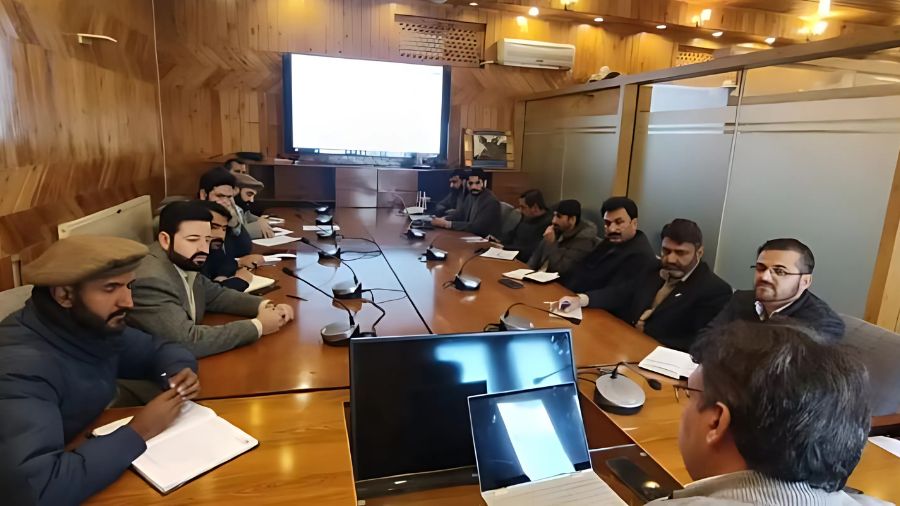
In August 2023, the Gilgit-Baltistan Performance Management & Reforms Unit (GB PMRU) and Code for Pakistan (CfP) launched the Gilgit-Baltistan Government Innovation Fellowship Program, embedding technologists within government departments to modernize administrative processes, improve service delivery, and enhance transparency. Over the past year, the Fellowship has supported key governance initiatives — introducing digital tools that streamline government operations and strengthen public engagement.
For years, governance in Gilgit-Baltistan relied on manual documentation and fragmented data systems, making it difficult to track performance, allocate resources, and ensure accountability. Government employees managed workforce records through paper-based systems, development projects lacked real-time monitoring, and decision-making often relied on outdated reports. Recognizing these challenges, PMRU, with support from the Fellowship, introduced digital solutions to address inefficiencies, automate workflows, and make governance more data-driven.
At the heart of this transformation were four technologists, each contributing to a critical area of reform. Ehsan Karim spearheaded performance monitoring, helping design a centralized tracking system that allows government officials to oversee development projects and district-level operations in real time. Zaheer Abbas played a key role in supporting the Human Resource & Asset Management System (HRMIS), which helps departments manage employee records and optimize workforce planning. Syed Tassawur Mehdi focused on increasing transparency by working on the GB Vehicle Management System, an initiative that will enable government departments across GB to keep track of government vehicles and their POL expenses. Meanwhile, Sharafat Ali worked on process automation, developing a Task Management System to help government departments improve coordination and efficiency in executing directives.
Beyond internal government efficiencies, Code for Pakistan also worked on technology-driven community initiatives. One such initiative, the GB Volunteer Tourism Platform, was launched in partnership with the Education Department to introduce students to digital skills. Volunteers conducted interactive sessions, training students in Hunza, Skardu, and Ghizer, while teachers received support in using IT tools to enhance their teaching methods. This initiative not only helped bridge the digital divide in rural areas but also strengthened the link between tourism and local capacity-building, ensuring that community-driven development remains a priority.
As the Fellowship moves into its next phase, the focus is on scaling these solutions and supporting new initiatives. The upcoming GB Open Data Portal aims to improve access to government datasets, promoting transparency and evidence-based policymaking. Discussions are also underway to explore AI-driven policy tools, helping government departments make better resource allocation decisions. With the success of HRMIS and task management automation, there is also interest in adapting these systems for use at the provincial level, expanding their impact beyond Gilgit-Baltistan.
This past year has reinforced the role of technology as an enabler of efficient, transparent governance. By supporting technologists to work closely with the government, the Gilgit-Baltistan Government Innovation Fellowship Program has provided sustainable, scalable, and replicable solutions that contribute to modernizing governance in Pakistan. While PMRU continues to lead these efforts, the Fellowship remains committed to supporting government stakeholders, developing civic tech solutions, and ensuring that digital tools serve the public good.
Interested in partnerships or technical insights? Contact info@codeforpakistan.org to explore ways to collaborate.